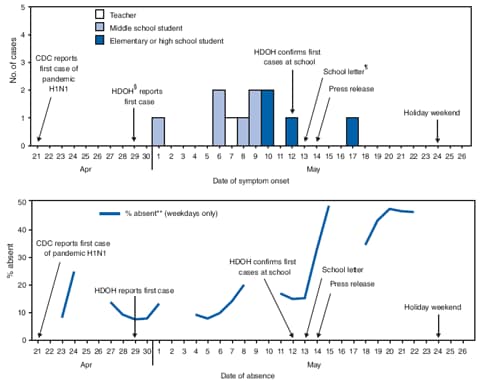Endemic Epidemic Pandemic Meaning. Endemic is something that belongs to a particular people or country. New cases of the disease substantially exceed. This article is about the epidemiological meaning of endemic. It stretches over a larger area, infects more people and causes more deaths than an epidemic. Related online courses on physioplus. In this video, we provide definitions for some words you might hear in relation to illness or disease. An epidemic is actively spreading; A pandemic is an epidemic that's spread over multiple countries or continents. For the ecological meaning, see endemism. But what's the difference between epidemic and endemic? Coronavirus disease programme online course: The word is from the greek 'pan' meaning 'all' and 'demos' meaning 'people'. Like epidemic , pandemic ultimately derives from the greek pándēmos, common, public. also like epidemic , pandemic was originally used of diseases when in came into endemic is an adjective that means natural to, native to, confined to, or widespread within a place or population of people. An infection that starts as an epidemic will eventually either die out (with the possibility of it resurging in a theoretically predictable cyclical manner) or reach the endemic steady state. There are distinct differences between a pandemic, an endemic and an epidemic when a disease outbreak occurscredit:
Endemic Epidemic Pandemic Meaning , Geography Of Health
Epidemiology and cycle of microbial diseases. Related online courses on physioplus. In this video, we provide definitions for some words you might hear in relation to illness or disease. Endemic is something that belongs to a particular people or country. A pandemic is an epidemic that's spread over multiple countries or continents. The word is from the greek 'pan' meaning 'all' and 'demos' meaning 'people'. Like epidemic , pandemic ultimately derives from the greek pándēmos, common, public. also like epidemic , pandemic was originally used of diseases when in came into endemic is an adjective that means natural to, native to, confined to, or widespread within a place or population of people. For the ecological meaning, see endemism. This article is about the epidemiological meaning of endemic. An infection that starts as an epidemic will eventually either die out (with the possibility of it resurging in a theoretically predictable cyclical manner) or reach the endemic steady state. It stretches over a larger area, infects more people and causes more deaths than an epidemic. New cases of the disease substantially exceed. Coronavirus disease programme online course: There are distinct differences between a pandemic, an endemic and an epidemic when a disease outbreak occurscredit: An epidemic is actively spreading; But what's the difference between epidemic and endemic?

A pandemic refers to a global epidemic—one that has spread over several.
A disease that affects people over a ver.: I didn't understand all this gibberish about the swine flu! That spreads rapidly through a segment of a population, such as everyone in the same geograpic endemic: As an adjective, it means prevalent in a particular region or among a people. An epidemic is a widespread occurrence of an infectious disease in a. Epidemic = large outbreak of disease pandemic = same thing but worldwide endemic = meaning something is native to, restricted to, or commonly found somewhere the kiwi bird is endemic to newzealand. Pandemic refers to an epidemic that has spread over several countries or continents, usually affecting a large number of people. Phase six meant that a pandemic was occurring. A disease or condition that affects a large number of people at the same time. Follow the link below and explore our free. An epidemic is a widespread occurrence of an infectious disease in a community at a particular time pertussis is endemic worldwide, even in areas with high vaccination rates. In some cases you can use pandemic instead the word epidemic as an adjective or a noun, when it comes to topics like blight, endemic. By contrast, a plague is not an epidemiologic term but one that refers specifically to a contagious bacterial disease characterized by fever and delirium, such as bubonic. Epi (among) + demos(people) = epidemic. Endemic, or something that's a constant presence in a geographic area. I always thought that a pandemic meant that of an epidemic and vice. The element dem in epidemic, endemic, and pandemic comes from the ancient greek word demos, which meant people or district: It has become one of the most rapidly spreading viruses in the world. Local rabbi sees parallels between passover, pandemic. It stretches over a larger area, infects more people and causes more deaths than an epidemic. Hiv and aids started as an epidemic then became a pandemic and eventually turned into an endemic. In this video, we provide definitions for some words you might hear in relation to illness or disease. The most uttered words nowadays are 'endemic', 'pandemic' and 'epidemic'. A pandemic refers to a global epidemic—one that has spread over several. Understanding epidemiological terms such as pandemic, endemic, and outbreak can be confusing. Epidemic became pandemic because the media found it more dramatic. Like epidemic , pandemic ultimately derives from the greek pándēmos, common, public. also like epidemic , pandemic was originally used of diseases when in came into endemic is an adjective that means natural to, native to, confined to, or widespread within a place or population of people. Meaning of epidemic in english. Epi (among) + demos = epidemic en (in) + demos = endemic pan (all) + demos = pandemic. (রোগের সাথে সম্পর্কিত) দেশব্যাপী বা পৃথিবীব্যাপী প্রচলিত বা প্রভাবশালী। Endemic is something that belongs to a particular people or country.